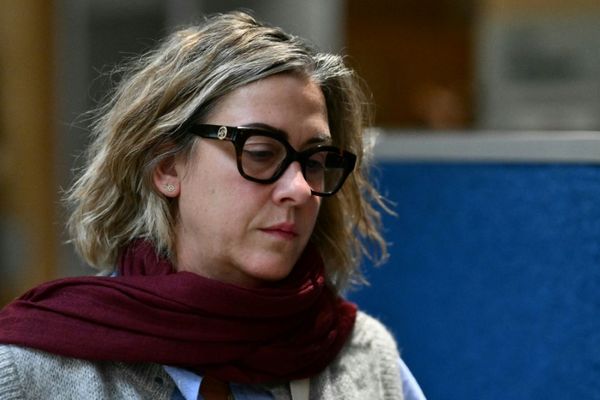
In the early 1930s, when Claud Cockburn worked on the Times, the subeditors had a competition to see who could compose the dullest headline. Cockburn claimed that he won with “Small earthquake in Chile. Not many dead”. Alas, subsequent factcheckers have failed to unearth such a headline in the archives, but it came to mind last week when Netflix announced, in a quarterly earnings report, that for the first time in a decade it had lost subscribers – 200,000 of them, to be exact. In North America, it had lost 640,000 and suffered additional losses in every other region except for Asia-Pacific area, where it added a million.
This didn’t seem very interesting to this columnist, especially as it included the period when Netflix had pulled out of Russia, where it had 700,000 subscribers, which to my mind meant that the reported loss would have been a gain of half a million had Putin not invaded Ukraine.
Still, the negative 200,000 figure seemed to spook Wall Street. Netflix’s stock price collapsed by nearly 40% in two days, taking more than $50bn off the company’s market value in the blink of an eye. This was a shock because just over a month ago – on 8 March, to be precise – the company’s chief financial officer was telling a conference organised by Morgan Stanley that the company was on a growth track that “pretty quickly gets us to a business that’s over a half a billion members”. But now suddenly that rosy picture has faded; the outlook has turned pessimistic and Netflix is forecasting that it will lose another 2 million subscribers over the next three months.
So what happened? Why has a golden goose suddenly turned into a turkey? Possible explanations include the thought that maybe Netflix’s precipitous growth was a blip caused by the pandemic lockdown. In that case, it’s rather like, say, Zoom or Peloton, other erstwhile beneficiaries of Covid.
Another plausible hypothesis is that it’s driven by consumer reaction to the new post-Covid reality of raging inflation and an impending cost-of-living crisis. This is supported by the discovery that it’s not just Netflix that’s affected; other streaming services are too. In the UK, for example, the number of subscribers to streaming video services such as Amazon Prime and Disney+ – as well as Netflix – fell in the first quarter of the year. According to one report, the number of UK homes with at least one paid-for subscription to a streaming service fell by 215,000 in the first three months, ending a decade of almost uninterrupted growth in the popularity of such services. And as households pull back on their addiction to binge-watching opportunities, there’s a gloomy feeling in the industry that they will fall back on the devils they know – Netflix and Amazon Prime – rather than the newcomers Disney+ and Apple.
The recent proliferation of video streaming services was celebrated by salivating media evangelists, who saw it as a wondrous proliferation of consumer choice. Sadly, most of these enthusiasts seem never to have read any history. In particular, they have clearly never heard of Herbert Simon, a brilliant economist who won a Nobel prize in 1978 and who presciently observed in 1971 that “in an information-rich world, the wealth of information means a dearth of something else: a scarcity of whatever it is that information consumes. What information consumes is rather obvious: it consumes the attention of its recipients. Hence a wealth of information creates a poverty of attention and a need to allocate that attention efficiently among the overabundance of information sources that might consume it.”
Let’s do some sums. Of the 24 hours in the day, we spend about eight of them sleeping, eight working and two or three doing other things such as cooking, shopping etc. That leaves something like five hours that are available for other activities – exercise, email, social media, web browsing, video games, reading, hobbies, going to the cinema, shouting at the TV news and so on. Those five hours, which also define the zone where the world’s couch-potatoes hang out, are what the operators of streaming services are aiming to colonise. The downturn in streaming services may be a signal that this is a tighter marketplace than tech entrepreneurs, venture capitalists and media companies fondly imagine.
Which on the whole would represent a benefit for humanity. Evolution didn’t design human bodies for slumping on settees and being a couch potato doesn’t do much for one’s mental health. And less streaming might also be good for the planet. A Carbon Trust study estimated in 2020 that the carbon emissions from one hour of online video were 56g of CO2 per device. Multiply that by the 200,000 subscribers that Netflix has lost and you get an idea of what the environmental benefit of less streaming might be. In every cloud, there’s a silver lining.
What I’ve been reading
Spying tonight
How Democracies Spy on Their Citizens is a fine New Yorker piece about Pegasus, the noxious spyware used by governments to spy on both citizens and journalists.
Done down by the Donald
Kevin McCarthy Will Live to Lie Again is an excoriating Politico column by Jack Shafer on the House of Representatives minority leader whose spine appears to have been surgically removed by Trump.
Mind how you go
Technology’s Mindfulness Racket is a lovely 2014 essay in the New Republic by Evgeny Morozov.







